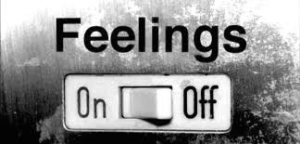
Psychologist from a flower pot (the most common prejudices about psychology and psychologists)
Few professions provoke such intense reactions and are shrouded in mystery, controversy, and contradictions as psychology. Much of this is, to a large extent, the psychologists’ own doing, as there are quite a few among them who conceal their ignorance and lack of expertise, as as personal shortcomings and conflicts, by excessively using technical terminology when speaking with those outside the field. There is also a tendency to present themselves as individuals who can quickly and easily make conclusions about others. Additionally, the seventh art has played its part, portraying psychologists as people who almost possess supernatural abilities The truth lies somewhere in between…
There are several groups of prejudices about psychology, and the first concerns reactions to psychology as a profession. The author’s personal experience indicates that there are four types of reactions to someone stating they are a psychologist.
1. The natural reaction, which one would expect for any other profession, is definitely the rarest response.
2. The narcissistic reaction includes statements like: “Look, maybe you have your degrees, but I have street smarts,” “I don’t need any schooling; I’m a natural psychologist,” “All that schooling is useless; I learned psychology on the streets. That’s the real school.” Such comments are made without any questions or provocation, like “a bolt from the blue,” just at the mention of being involved in psychology.
These attitudes and statements almost imply that psychologists are not born and do not live, but are cultivated in flower pots, never having the chance to see the streets or the light of day, and certainly lacking any natural talent for their profession. They are, in fact, born mechanics or computer whizzes, but unfortunate circumstances or sheer mistakes led them to the Faculty of Philosophy.
If only those who make such comments knew the rich and fascinating life stories of successful psychologists, would they perhaps change their tune? No, in most cases, they would not. Because this type of comment has nothing to do with knowledge and information but rather with personality types and personal needs. New information rarely leads to changes in attitudes and needs.
Are there paths to change? Yes. One of the faster and more effective ways is psychotherapy.
3.The paranoid reaction involves a suspicious look immediately after mentioning that you are a psychologist, accompanied by comments like: “So, you know everything about me now,” “Are you scanning me?” “You know what I’m thinking now,” “You know what kind of person I am,” “So, what type of personality am I?”… No, no, no, no, no… Psychologists, although they have the knowledge and skills that allow for deeper insights into the reasons behind others’ behaviors and reactions, do not have an overwhelming need to “profile” or, as they say, “scan” every person they meet. This is something that may be attempted by psychology students or psychologists who are just starting their careers, mainly for practice. If it were possible to assess someone based solely on a glance, all the various tests that are widely used (some of which can be quite expensive) would lose their significance. If psychologists knew what people were thinking, all those countless stories about early childhood and traumatic events would be completely unnecessary. A client would show up, and before they could say anything important, the therapist would nod their head and say, “I understand everything, I know everything,” which would significantly shorten the therapeutic process or diagnosis. In the end, psychologists are people just like everyone else, who, after their working hours, want to take a break from work and enjoy spontaneous communication and socializing, not continue with unpaid overtime.
4.The dismissive reaction includes comments like: “You don’t know what you’re doing…”, “What do you really know about human beings – based on what?”, “You don’t know the basics of how the human organism functions”, “This is just feeling around in complete darkness”, “Freud reduced man to sexuality”… This type of comment most often comes from highly educated individuals and experts from earlier fields (mostly natural sciences) who don’t know much about psychology. They have never truly engaged with psychology nor studied serious literature, but they have read a few articles, watched several films, and, of course, possibly had the chance to meet a psychologist. They believe that their academic title gives them the legitimacy to judge absolutely everything, regardless of how much that has or doesn’t have to do with what is on their diploma. When suggested to take one of the psychological tests, purely for experimental purposes, they jump back more than professional long jumpers do forward, explaining that it’s all nonsense to them and that they don’t believe in it, as if it were about reading tarot cards rather than an experimentally validated and standardized method. The truth is that psychology is not the most exact science that exists, but which science, aside from mathematics, is? Even in physics, there are many more theories than axioms. The effects of marketing and mass media are a direct result of advancements in psychology, for instance, and this is something that any average intelligent person can observe in their immediate surroundings. Those who have had the opportunity to undergo some form of psychotherapy will best testify to how psychologists can understand the causes and consequences of certain behaviors or states. It is also true that Freud emphasized the influence of sexuality on human behavior and life, but this is far from being his only contribution to psychology. His theories on the structure of personality, stages of development, dream theory, defense mechanisms, etc., represent absolutely brilliant insights into the functioning of human beings, and they are of inestimable value in working with clients. We cannot help but appreciate them, regardless of whether we like Freud as a person or not.

The second group of prejudices relates to the payment for psychological services. A commonly held belief in our society is that it is the duty of psychologists to provide their services completely free of charge. While organizing numerous lectures, seminars, and courses, I have encountered people who are not only shocked but also angry that such events have a price, often asking, “Shouldn’t this be free?”. In a communist society, this question would have some basis and would be completely valid, but in a capitalist-oriented environment, where everything from public transportation to water sources, spas, and treatment centers has been privatized it indicates a serious disorientation in space and time. Few are those born under a lucky star who can pursue what fulfills them without considering the financial aspect. The rest of us are more than happy when we manage to combine the enjoyable with the useful, that is, when we can work in a profession we love and get paid for it. Unfortunately (myself included), psychologists, just like other people, live in a material world and have existential needs that must be met, even though there is evidently a tendency to dehumanize psychologists, viewing them not as human beings, a topic that will be elaborated on in the next paragraph. Interestingly the people in this region are completely accustomed to the fees of clergy, who supposedly should not charge for their services, not for services related to the seven sacraments, according to Canon Law. However, these fees are rarely questioned and are taken as a given. Justifications for clergy often include phrases like, “Well, they are just people too,” while psychologists are expected to be on some kind of mission 24/7. It seems that certain theses have been somewhat reversed. Whose fault that is, is another topic altogether.

The third group of prejudices relates to the personality and emotions of psychologists. We have reached the peak of the dehumanization of psychologists. Any display of emotion by a psychologist raises the question: “What kind of psychologist are you?” Regardless of whether the psychologist in question sad, disappointed, nervous, or angry, the question is always the same. This leads us to the task of dismantling the misconception that a psychologist must be as calm as a Buddhist monk. Buddhist monks are who they are because they live in a specific way and have little contact and communication with the outside world. It’s unlikely that any of them would be interested in the profession of a psychologist. In the world we live in, expressing emotions in a socially acceptable and withoutangering others is healthy and even desirable for maintaining both mental and physical health, regardless of one’s profession. The absence of emotions is not a trait of a “good psychologist,” but rather a sign of serious mental illness.

The fourth group of prejudices relates to the belief in the omnipotence of psychologists. The extent of people’s awareness regarding psychology as a profession in our region is best illustrated by the fact that a large number of people contact psychologists seeking ADVICE on how to overcome depression, anxiety, phobias, and so on. In Serbia, and perhaps more broadly, people TRULY believe that a psychologist can provide ADVICE that will help them overcome these difficult and serious issues. A psychotherapist/psychologist is indeed seen as someone with knowledge that possesses healing powers, meaning that there is something they can say or do in one session that will permanently resolve the problem.
In my work, I encounter significant resistance to accepting the fact that no problem arises overnight; rather, it accumulates and grows over decades, and it requires a considerable investment of time (months or even years) to resolve. After explaining this, I often hear further questions: “But what should I do in such and such a situation? I don’t have a year to deal with this,” or “How can I stop feeling this way?” “What method is used for…?”
When someone suffers from physical illnesses such as asthma, cancer, or even persistent bacterial infections like E. coli, such attitudes do not exist. No one asks for an instant solution or advice from which they will feel better immediately; instead, people generally prepare for a long-term battle, faithfully follow their doctor’s instructions, go for regular check-ups, change their diet and lifestyle, and take their medication regularly.
A similar approach is essential when it comes to psychological problems. Those who do not have time to devote to resolving their issues must accept that they will live with symptoms that, at best, will remain unchanged or may even worsen.
All of the above are serious warning signs that the professional community and the media must join forces to raise public awareness on this very important issue, as professional psychological help will be increasingly necessary in the coming years.
